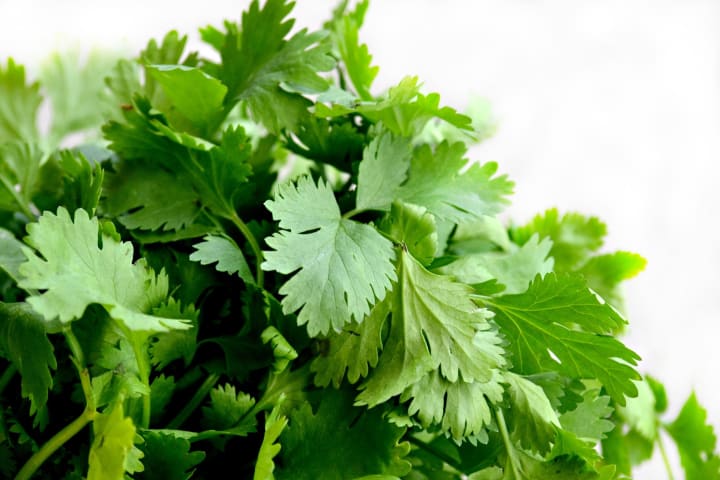Health benefits of parsley : get to know them
health benefits of parsley : get to know them

Health benefits of parsley: get to know them
The Arab house is not devoid of parsley, so who among us can do without tabbouleh and fattoush? Let's learn about the many and many health benefits of parsley from the article.
Let us know the following about the most important benefits of parsley, in addition to important information about its uses and side effects:
The benefits of parsley
The benefits of parsley are as follows:
1. Promote digestive and liver health
Eating parsley daily may contribute to supporting the health of the digestive system, due to its role in supporting the liver, as parsley increases levels of glutathione, the main antioxidant in the liver.
It has been proven that parsley can regenerate liver tissue after damage caused by chronic diseases, as parsley stimulates the production of bile juice in the liver, which is needed to digest fats in the intestine.
Deficiency in bile production contributes to poor digestion, bacterial overgrowth, and hormonal disorders, so this bile is also essential for the release of toxins that are flushed out of the body and liver.
2. Reducing blood sugar levels

Parsley has been shown to lower blood glucose levels and is used as an alternative treatment for type 1 diabetes in some countries.
3. Improve breath and body odor
Parsley is rich in chlorophyll, and this makes it give the breath and the body a beautiful aroma.
It is worth noting that chlorophyll acts as an anti-mutagenic and reduces odor-causing bacteria responsible for the production of bad breath and body odor.
4. Lowering blood pressure
It is known that parsley acts as a diuretic, as it increases the excretion of sodium and water through the urine and increases the reabsorption of potassium in the kidneys, and this makes it reduce blood pressure.
5. Contribute to reducing the possibility of cancer
Fresh parsley leaves contain a variety of antioxidants, including flavonoids, carotenoids, vitamin C, and vitamin E, all of which protect the body from the effect of free radicals.
Free radicals are molecules that damage healthy cells and lead to the development of cancer.
The nutrients contained in parsley

In the following, the nutritional element present in parsley will be mentioned, along with its benefits:
Vitamin A: Improves night vision and skin health.
Vitamin B: Helps restore body cells, and release energy from cells.
Vitamin C: Helps maintain the immune system.
Vitamin E: contributes to delaying cell aging.
Vitamin K: Helps balance blood viscosity and clean and produce liver protein.
Iron: used to produce hemoglobin, which is needed for energy.
Manganese: helps absorb vitamin C, and produces sex hormones.
Potassium: Good for growth, building muscles and strengthening the nervous system.
Zinc: strengthens the immune system and prevents acne.
Calcium: works to strengthen bones, teeth and hair.
Parsley uses
Parsley can be used in several ways, the most prominent of which are the following:
Parsley juice: Parsley is mixed with many other fruits and vegetables.
Parsley soaked: This is done by soaking parsley leaves in boiling water for several minutes.
Salads: where fresh leaves are added to various salads.
Spices: Parsley is dried and then added to foods in the form of spices.
Tips to get the best benefits of parsley
Before buying and eating parsley, remember the following:
Parsley should be purchased fresh, green leaves with no signs of drying or fading.
Rinsing, drying and chopping should be done close to mealtime to prevent vitamins from leaking out.
Parsley should be added at the end of the cooking process to preserve flavor and nutritional quality, if you want to incorporate parsley into your stew.
Possible side effects of parsley
The leaves and stems of parsley are safe and can be consumed without limit and without fear of poisoning, but only the sensitive part is the parsley seeds, as these contain essential oils that must be consumed in a deliberate manner, as the consumption of grains causes the following:
Nausea.
Headache.
sensitivity to sunlight
Damage to the liver and kidneys.
It should be mentioned that it is not recommended to consume parsley for pregnant women for fear of stimulating childbirth, nor for breastfeeding women for fear of drying up the milk.






Comments
There are no comments for this story
Be the first to respond and start the conversation.